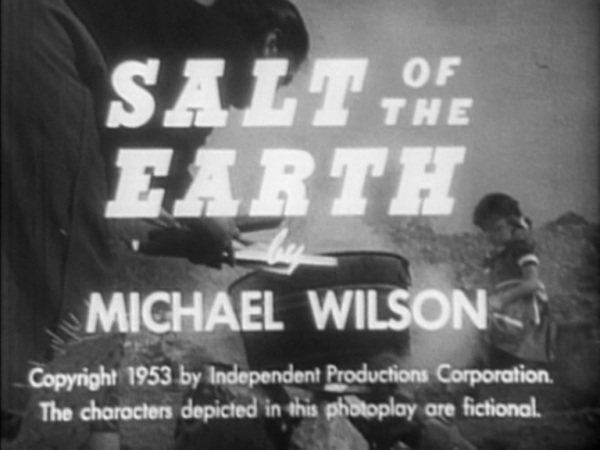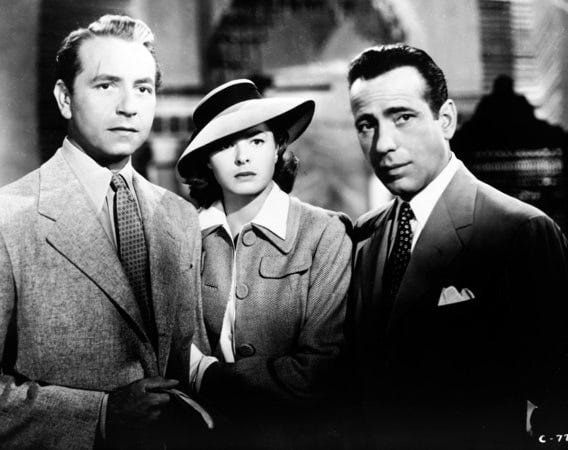A Rambling on the Social Power of Films and How We Learn to Read Them
How language constructs thought and film canon
I sobbed in hope, despair, and admiration after watching Salt of the Earth the other day. Though I’d know about this film for years, it was the type of film that needed to cross my path exactly when it did. Salt of the Earth is a 1954 independent feature about the lives and struggles of Mexican American miners that go on strike when their rich, white bosses refuse to ensure their equality or safety. The film was blacklisted upon release and denounced by the federal government of America. It was virtually blocked from being shown to the public, and what a travesty? Salt of the Earthis pro-labor, pro-communism, pro-feminism, and a film that’s meant to remind audiences that the road to revolution is paved in hard turns, long miles, and danger. But to seek revolution, the road must be traversed.
I had been thinking earlier that day about how a society upheaves a corrupt, neo-liberal capitalist system. My American side kicked in: “But wait,” I debated with myself, “Is revolution and violence really the answer? Is that really the only way to take back power as the people?” Then, my dear friend Eve popped in my head. This person will only be referred to as Eve for their safety. Eve is a gay, revolutionary, Turkish-born Kurd, living abroad. English is Eve’s second language, and I met them while learning French—my second language, their third— in Paris. We both went to the same school, had the same stresses, the same sadness about the world, the same carefree spirit, the same tender hearts, the same fantasies about a world of equality. We were also much more different than we were alike. Oil and water, me and Eve, and it made for a powerful friendship that was transformational for the both of us.
My E-v-e-oil would always respond to my pacifism with heat. They’d tell me, respectfully, that I was brainwashed by a nation-state that is corrupt all the way down to its very nascence. The United States. States. Nations. They’re all meant to control the people, and the hands moving the pieces are corrupted elite. The bourgeoisie. It was all the things I knew to be true, but it was harsh to hear from someone who had never even been to America. We argued about that too. I constantly had to break down Eve’s stereotypes, assumptions, and negative biases against America and its people. It’s a shitty house, but it’s my house, buddy. But, because I pride myself on attempting to maintain emotional maturity and level-headedness in life, I never took Eve’s digs or hostility in an argument personally. Neither of us did. We had so many difficult conversations for the first time with each other. We both learned a new level of emotional maturity and open dialogue. It was truly special.
Now, Eve and I didn’t just talk about the KPP party, and Frantz Fanon, and misogynoir, and the Parisian banlieues, identity and ethnicity, and Berbers. We talked about movies, all the time. We both sat through the same poorly taught film courses in our graduate program, and we’d spiral far too often talking about how we facetiously threw away money on a fake masters. We saw so many movies in the coolest Parisian theaters together. (And let me tell you, French theaters are only “cool” figuratively. I’ll write up an essay one day about getting fooled twice on the hottest days of the year with no A/C.) On one particular occasion, I invited, ok practically begged, Eve to come to either the Cinema Christine or Le Champo to see a classic Hollywood movie with me. Eve has great taste in cinema and is a stunning filmmaker, so I was thrilled to introduce them to not just any old, black-and-white film, but one of the greatest films old Hollywood has to offer: Casablanca…



